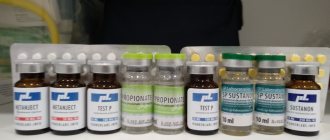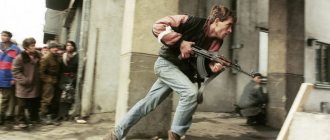1. Illegal production, processing, acquisition, storage, transportation or shipment for the purpose of sale, as well as illegal sale of potent or toxic substances that are not narcotic drugs or psychotropic substances, or equipment for their production or processing -
shall be punishable by a fine in the amount of up to forty thousand rubles, or in the amount of the wages or other income of the convicted person for a period of up to three months, or by compulsory labor for a term of up to three hundred sixty hours, or by corrective labor for a term of up to one year, or by restriction of liberty for a term of up to three years. , or forced labor for a term of up to three years, or imprisonment for the same period.
2. The same acts committed by a group of persons by prior conspiracy, -
shall be punishable by a fine in the amount of up to eighty thousand rubles, or in the amount of the wages or other income of the convicted person for a period of up to six months, or by compulsory labor for a term of up to four hundred eighty hours, or by corrective labor for a term of up to two years, or by forced labor for a term of up to five years. , or imprisonment for the same period.
3. Acts provided for in parts one or two of this article, committed by an organized group or in relation to potent substances on a large scale, -
shall be punishable by a fine in the amount of up to one hundred twenty thousand rubles, or in the amount of the wages or other income of the convicted person for a period of up to one year, or by forced labor for a term of up to five years, or by imprisonment for a term of up to eight years.
4. Violation of the rules for the production, acquisition, storage, accounting, release, transportation or transfer of potent or toxic substances, if this negligently resulted in their theft or causing other significant harm, -
shall be punishable by a fine in the amount of up to two hundred thousand rubles, or in the amount of the wages or other income of the convicted person for a period of up to eighteen months, or by compulsory labor for a term of up to four hundred eighty hours, or by corrective labor for a term of up to two years, or by restriction of liberty for a term of up to two years. , or forced labor for a term of up to two years with deprivation of the right to hold certain positions or engage in certain activities for a term of up to three years or without it, or imprisonment for a term of up to two years with deprivation of the right to hold certain positions or engage in certain activities for a term of up to three years or without it.
Note. Lists of potent and toxic substances, as well as large amounts of potent substances for the purposes of this article and other articles of this Code are approved by the Government of the Russian Federation.
- Article 233. Illegal issuance or forgery of prescriptions or other documents giving the right to receive narcotic drugs or psychotropic substances
- Article 234.1. Illicit trafficking in new potentially dangerous psychoactive substances
Criminal liability has been introduced for illegal trafficking of the drug Lyrica
The government has included three “pharmacy drugs” included in the list of vital and essential drugs on the list of potent substances, the illegal trafficking of which is subject to criminal liability, Izvestia reports. These are Tropicamide (a pupillary dilatant), Tapentadol (an opioid analgesic), and Pregabalin (an anticonvulsant that is also used to relieve neuropathic pain and treat anxiety disorders). Pregabalin serves as the basis for the drug Lyrica, which is popular, including among drug addicts, for the drugs Replica, Algerica, Pregabio, etc.
Now the circulation of these drugs without a prescription falls under Art. 234 of the Criminal Code of the Russian Federation, which establishes liability for the illegal manufacture, processing, acquisition, storage, transportation or shipment for the purpose of sale, and for the illegal sale of potent or toxic substances that are not narcotic drugs or psychotropic substances. For those found guilty of this crime, the punishment can be heavy fines, or imprisonment for up to 3, 5 or 8 years, depending on the circumstances.
Criminal liability for the illegal sale of “pharmacy drugs” is necessary because of its extremely high profitability, which allowed unscrupulous pharmacists to painlessly pay administrative fines, the Russian Ministry of Internal Affairs previously stated. A draft resolution tightening liability for the illegal trafficking of these drugs was developed by the Ministry of Health in January 2022. Information about this was then misinterpreted in a number of media outlets, which reported on an allegedly proposed ban on Lyrica, which is needed by many patients.
Lyrica was previously sold without a prescription, which led to widespread abuse of the drug among drug addicts.
In the fall of 2015, Lyrica (Pregabalin) and Tropicamide, as well as Cyclopentolate, were included in the list of drugs subject to subject-quantitative accounting. This did not help stop the epidemic of “pharmacy drug addiction,” which has spread, in particular, to the southern regions of Russia. “In our region, the killer drug was sold and is still being sold. Just as young people died, they continue to die. Just as young people from all the republics of the North Caucasus Federal District were buying Lyrica in notorious pharmacies, this continues to this day,” said Nikolai Novopashin . At the same time, the regional parliament announced that a decision was being prepared to completely ban the sale of Lyrica and other “pharmacy drugs” in the region.
Judicial practice under Art. 234 Criminal Code of the Russian Federation
Criminal Code of the Russian Federation
Article 234. Illegal trafficking of potent or toxic substances for the purpose of sale 1. Illegal production, processing, acquisition, storage, transportation or shipment for the purpose of sale, as well as illegal sale of potent or toxic substances that are not narcotic drugs or psychotropic substances, or equipment for their production or processing -
shall be punishable by a fine in the amount of up to forty thousand rubles, or in the amount of the wages or other income of the convicted person for a period of up to three months, or by compulsory labor for a term of up to three hundred sixty hours, or by corrective labor for a term of up to one year, or by restriction of freedom. for a term of up to three years, or forced labor for a term of up to three years, or imprisonment for the same term.
(as amended by Federal Law dated December 7, 2011 N 420-FZ)
2. The same acts committed by a group of persons by prior conspiracy, -
(as amended by Federal Law dated December 8, 2003 N 162-FZ)
shall be punishable by a fine in the amount of up to eighty thousand rubles, or in the amount of the wages or other income of the convicted person for a period of up to six months, or by compulsory labor for a term of up to four hundred eighty hours, or by corrective labor for a term of up to two years, or by forced labor for a term of up to five years. , or imprisonment for the same period.
(as amended by Federal Law dated December 7, 2011 N 420-FZ)
3. Acts provided for in parts one or two of this article, committed by an organized group or in relation to potent substances on a large scale, -
shall be punishable by a fine in the amount of up to one hundred twenty thousand rubles, or in the amount of the wages or other income of the convicted person for a period of up to one year, or by forced labor for a term of up to five years, or by imprisonment for a term of up to eight years.
(as amended by Federal Laws dated December 8, 2003 N 162-FZ, dated March 7, 2011 N 26-FZ, dated December 7, 2011 N 420-FZ)
4. Violation of the rules for the production, acquisition, storage, accounting, release, transportation or transfer of potent or toxic substances, if this negligently resulted in their theft or causing other significant harm, -
(as amended by Federal Law No. 92-FZ of June 25, 1998)
shall be punishable by a fine in the amount of up to two hundred thousand rubles, or in the amount of the wages or other income of the convicted person for a period of up to eighteen months, or by compulsory labor for a term of up to four hundred eighty hours, or by corrective labor for a term of up to two years, or by restriction of liberty for a term of up to two years. , or forced labor for a term of up to two years with deprivation of the right to hold certain positions or engage in certain activities for a term of up to three years or without it, or imprisonment for a term of up to two years with deprivation of the right to hold certain positions or engage in certain activities for a term of up to three years or without it.
(as amended by Federal Law dated December 7, 2011 N 420-FZ)
Note. Lists of potent and toxic substances, as well as large amounts of potent substances for the purposes of this article and other articles of this Code are approved by the Government of the Russian Federation.
(note introduced by Federal Law dated November 4, 2007 N 252-FZ)
Verdict under Part 3 of Art. 234 of the Criminal Code of the Russian Federation
Sentence
In the name of the Russian Federation
Moscow September 27, 2010.
x District Court of Moscow composed of presiding judge x,
with the participation of: state prosecutor x interdistrict prosecutor's office of Moscow x, defendant M,
defense attorney V.S. Baumzweiger, who presented certificate No. 9305 and warrant No. PO,
with secretary x,
having examined the materials of the criminal case against M, accused of committing four crimes under Art. 234 part 3 of the Criminal Code of the Russian Federation,
INSTALLED:
M committed the illegal sale of potent substances that are not narcotic drugs or psychotropic substances on a large scale.
Thus, M in March illegally sold X for 2000 rubles 200 tablets of the same type containing a potent substance - methandienone (methandrostenolone) with a total weight of 19.2 grams, and three ampoules with liquid containing a potent substance - nandrolone decanoate with a total weight 2.7 grams, that is, a potent substance in a large size.
In May, he illegally sold Z. for 4,100 rubles 200 tablets of the same type containing the potent substance methandienone with a total weight of 20.0 grams, and seven ampoules with liquid containing the potent substance nandrolone decanoate with a total weight of 5.6 gram, that is, a potent substance in large quantities.
In June, he illegally sold X for 20,000 rubles 3,200 tablets and 300 tablets containing the potent substance methandienone with a total mass of 312.0 grams and 30.0 grams, respectively, that is, a potent substance in large quantities.
He also committed the illegal acquisition and storage for the purpose of selling potent substances that are not narcotic drugs or psychotropic substances on a large scale.
Thus, M from an unidentified person, for the purpose of further sale, illegally purchased 199 tablets containing a potent substance - methandienone with a total weight of 19.3 grams, that is, in large quantities, which he illegally kept with him for the purpose of further sale until June, when, during his personal inspection, the above-mentioned potent substance in large quantities was found and confiscated from him.
The court qualifies these actions of the defendant under Part 3 of Art. 234, part 3 art. 234, part 3 art. 234, part 3 art. 234 of the Criminal Code of the Russian Federation, since he committed three illegal sales of potent substances that are not narcotic drugs or psychotropic substances on a large scale, as well as illegal acquisition, storage for the purpose of selling a potent substance that is not a narcotic drug or psychotropic substance on a large scale.
The defendant agreed with the said accusation, which is justified and supported by evidence collected in the criminal case.
Since the defendant requested the use of a special procedure for the trial, which the state prosecutor agreed with, his request was made voluntarily, after consultation with the defense attorney, the defendant understands the nature and consequences of his request, the court pronounces the sentence without a trial.
When assigning punishment, the court takes into account the nature and degree of social danger of the crimes committed, information about the personality of the defendant, who has not previously been convicted and was brought to criminal responsibility for the first time, who has a positive character at the place of residence, work and study, who is a fourth-year student working as a sales manager.
As mitigating circumstances, the court recognizes the defendant’s sincere repentance for the crimes committed, as well as active assistance in solving the crime.
Taking into account the above circumstances of the case, the presence of mitigating circumstances - the defendant’s sincere repentance for the crimes committed and active assistance in solving the crime, as well as taking into account information about the personality of the defendant - a fourth-year student, working as a sales manager, positively characterized by his place of residence, work and study , the court comes to the conclusion that it is possible to correct the defendant without actually serving the sentence, and therefore considers it necessary to sentence the defendant using Art. 73 of the Criminal Code of the Russian Federation.
Based on the aforesaid and guided by Article. 316 Code of Criminal Procedure of the Russian Federation, court
SENTENCED:
M was found guilty of committing four crimes under Part 3 of Art. 234 of the Criminal Code of the Russian Federation, and sentence him for each crime to imprisonment for a period of four years.
Based on Part 3 of Art. 69 of the Criminal Code of the Russian Federation, based on the totality of crimes committed, by partial addition, sentence M to imprisonment for a period of five years.
Based on Art. 73 of the Criminal Code of the Russian Federation, the punishment imposed on convicted M is considered suspended with a probationary period of five years.
Assign the following responsibilities to the convicted person:
-do not change your permanent place of residence without notifying the criminal correctional inspection that exercises control over the convicted person.
-do not commit administrative offenses and do not appear in public places while intoxicated.
The preventive measure in the form of a recognizance not to leave the place shall be canceled once the sentence enters into legal force.
Material evidence in a criminal case: destroy potent substances; the money used during the test purchase in the amount of 20,000 rubles shall be left for the use of the owner; keep audio cassettes, video cassettes and details of telephone connections with the materials of the criminal case.
The verdict can be appealed in cassation to the Moscow City Court within ten days from the date of proclamation, and by a convicted person held in custody within the same period from the date of delivery of a copy of the verdict in compliance with the requirements of Art. 317 Code of Criminal Procedure of the Russian Federation. If a cassation appeal is filed, the convicted person has the right to petition for his participation in the consideration of the criminal case by the court of cassation.
Commentary on Article 234 of the Criminal Code of the Russian Federation
1. Potent substances are those that are not narcotic, have an intoxicating effect on a person and can cause death or harm to health.
Toxic substances include substances that have a toxic (poisonous) effect on the human body and can cause death or harm to health.
Equipment is considered to be both industrial and homemade or adapted equipment designed to produce chemical reactions or control physical processes to produce a potent or toxic substance.
2. The article under comment provides for two independent crimes:
1) Parts 1 - 3 establish liability for actions related to the illegal trafficking of potent or toxic substances;
2) in part 4 - for violating the rules of their legal circulation.
Actions expressed in the illegal production, processing, acquisition, storage, transportation or shipment or sale of potent or toxic substances or equipment for their production or processing are similar in content to the same actions provided for in Art. Art. 228 and 228.1 of the Criminal Code (see commentary to these articles). The illegality of these actions is manifested in their commission without the appropriate permission obtained in the prescribed manner.
3. The crime is considered completed from the moment of commission of any of the actions listed in the commented article.
4. The subjective side of the crime is characterized by direct intent. In the case of illegal production, processing, acquisition, storage, transportation or shipment, a mandatory feature is the special purpose of selling potent or toxic substances or equipment for their production or processing.
5. The subject of the crime is a person who has reached the age of 16 years.
6. Part 2 of the commented article identifies the commission of a crime by a group of persons by prior conspiracy as a qualifying feature (see commentary to Part 2 of Article 35 of the Criminal Code).
7. On the commission of a crime by an organized group (Part 3 of Article 234), see the commentary to Part 3 of Art. 35 of the Criminal Code.
8. When qualifying a crime committed in relation to potent substances on a large scale (Part 3 of Article 234), it is necessary to keep in mind:
1) the indicated size applies only to potent substances and does not affect the qualification of actions in relation to toxic substances and equipment;
2) large sizes of potent substances are approved by the Government of the Russian Federation (Resolution of the Government of the Russian Federation of December 29, 2007 N 964 “On approval of Lists of potent and toxic substances for the purposes of Article 234 and other articles of the Criminal Code of the Russian Federation, as well as large sizes of potent substances for the purposes of article 234 of the Criminal Code of the Russian Federation" <1>).
——————————— <1> NW RF. 2008. N 2. Art. 89.
9. Part 4 of the commented article provides for liability for violation of the established rules for the legal circulation of potent or toxic substances. The subject matter of the crime in question does not include equipment for the manufacture or processing of potent or toxic substances.
10. The range of actions specified in part 4 of the commented article, in comparison with Art. 228.2 of the Criminal Code is much narrower, in particular, it does not include the manufacture (handicraft), processing, sale (not in the form of dispensing), use, import, export or destruction of potent or toxic substances, therefore violation of the rules in relation to these actions does not form part of the crime in question .
11. On the content of the concept of theft, see the commentary to Art. 158 of the Criminal Code.
12. Other significant harm should be understood as illness of at least one person, pollution of the natural environment with toxic substances, suspension of the production process for a long period, the occurrence of a fire, etc.
13. The crime is considered completed from the moment one of the consequences specified in the law occurs.
14. The subjective side of the crime is characterized by a careless form of guilt.
15. Special subject of a crime - a person who is entrusted with the obligation to comply with established rules in the production, acquisition, storage, accounting, release, transportation or shipment of potent or toxic substances.
An analysis of the operational situation in the field of illegal drug trafficking shows that recently, along with narcotic drugs, psychotropic and potent substances that are prohibited or restricted for circulation on the territory of the Russian Federation, medications that do not belong to the specified controlled categories have begun to be distributed among adolescents and young people. but their psychoactive effects on the human body are similar to the effects of drugs.
As a rule, their illegal trafficking, in particular their use for non-medical purposes, occurs through the pharmaceutical market. One such drug is Lyrica. It is produced by Pfizer (Germany) and contains the active substance “pregabalin”. The drug "Algerica" also contains the active substance "pregabalin" (Russian production). In medical practice, it is used as an anticonvulsant; it must be dispensed from pharmacies with a doctor’s prescription. “The leadership of the republic, including law enforcement agencies, took all possible measures to counter the problem of the distribution of drug substitutes. On behalf of the head of the republic, chairman of the Anti-Drug Commission of the Republic of North Ossetia-Asia V. Bitarov, large-scale measures were taken to suppress the facts of illegal (over-the-counter) dispensing of drug substitutes from the pharmacies of the republic. The Arbitration Court of North Ossetia made court decisions unprecedented in the territory of the North Caucasus Federal District to revoke the license for pharmaceutical activities of persistent violators,” commented the head of the apparatus of the Anti-Drug Commission of the Republic of North Ossetia - Luiza Lebedeva, commenting on the situation in the republic.
According to experts, the drug causes addiction and dependence in small doses and in a short time; its effect on the body is similar to the effect of narcotic drugs and psychotropic substances.
“The drug Lyrica is intended for the treatment of epilepsy, neuropathic pain, fibromyolgia, and anxiety disorders. Despite mild Lyrica withdrawal symptoms on the first day, patients tolerated heroin withdrawal syndrome more easily than after using this drug. Lyrica causes frequent mood swings, strong cravings for this drug, persistent insomnia, anxiety, depression,” explained Alexander Gazaev, chief physician of the Republican Narcological Dispensary.
Over the past 5 years, the number of Lyrica consumers has increased. Drug addicts gathered near the so-called “specialized” pharmacies, which illegally dispensed the drug over-the-counter for profit. 27 cases of hospitalization were identified over the past two years.
The regional authorities have already launched a fight against the dangerous substance. The main remedy, as expected, was the tightening of liability for the sale of prescription drugs with psychoactive effects.
I would like to bring additional information to the residents of the republic about criminal liability for the illegal trafficking of these drugs. Now, the sanction of Article 234 of the Criminal Code includes, among other things, the sale of pregabalin or Lyrica, as well as tropicamide. The maximum penalty for their illegal trafficking is 8 years in prison.




